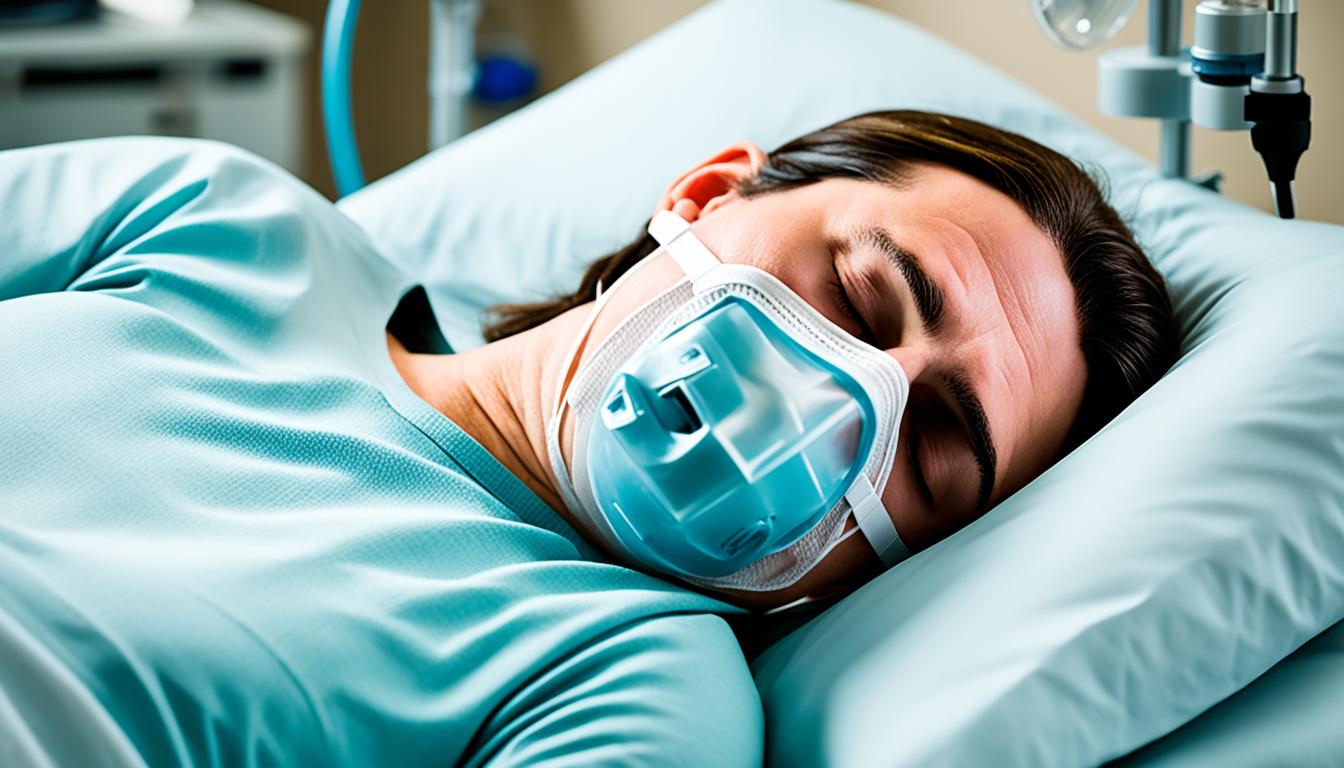Sleep apnea obstructive is a serious sleep disorder. It’s known for stopping breathing during sleep regularly. Oxygen levels in the blood can drop, and sleep gets disturbed. Signs of it include loud snoring, feeling very tired during the day, and waking up a lot at night.
It usually happens because of extra weight or obesity. This makes it hard to breathe well while sleeping. Having a narrow throat, imbalanced hormones, allergies, and smoking can also play a role.
Left unchecked, sleep apnea can cause heart problems and accidents. So it’s crucial to get it treated.
A sleep study is key for finding out if someone has this condition and how severe it is. Once diagnosed, treatments range from changing lifestyle habits to using a CPAP machine. In some cases, surgery might be necessary too.
Stem cell therapy is a new approach being looked at for treating sleep apnea. Stem cells can fix and renew damaged parts of the airway. This might bring better chances for treating sleep apnea in the future.
Key Takeaways:
- Sleep apnea obstructive is a sleep disorder characterized by breathing interruptions during sleep.
- Common symptoms include loud snoring, excessive daytime sleepiness, and frequent awakenings.
- The most common cause is excess weight and obesity, other risk factors include a narrow throat, hormonal imbalances, allergies, and smoking.
- Diagnosis involves a sleep study, and treatment options range from lifestyle changes to CPAP therapy and surgical interventions.
- Stem cell therapy is an area of promising research for sleep apnea treatment.
Causes and Risk Factors of Sleep Apnea Obstructive
The main reason for sleep apnea obstructive is being overweight. This extra weight can block the airway at night. Many studies show that most people with this condition carry too much weight. Even a small 10% increase in weight can make the problem six times more likely.
Other than weight, factors like a narrow throat, hormonal imbalances, and allergies can play a role. So can smoking and health issues that block the airways. In kids, obesity and certain physical features, like enlarged tonsils, can be the cause. Birth defects and genetic conditions are also linked, such as Down syndrome.
Risk Factors for Sleep Apnea Obstructive
- Excess weight and obesity
- Narrow throat
- Hormonal imbalances
- Allergies
- Smoking
| Risk Factor | Prevalence |
|---|---|
| Excess weight and obesity | More than half of people with OSA are overweight or obese |
| Narrow throat | Common risk factor in adults and children |
| Hormonal imbalances | Can contribute to airway obstruction |
| Allergies | Increased risk of airway congestion |
| Smoking | Can cause inflammation and throat irritation |
Diagnosis and Treatment of Sleep Apnea Obstructive
Sleep apnea is diagnosed through a thorough sleep study. This study checks your breathing, blood oxygen levels, and brain activity during sleep. It helps doctors know if you have sleep apnea and how bad it is. Then, they can choose the best treatment for you.
For mild sleep apnea, changes in your daily routine can help a lot. This includes losing weight, not smoking, and avoiding alcohol or sedatives. But if you have a more serious case, your doctor might recommend CPAP therapy. CPAP means wearing a mask at night. It helps keep your airway open by blowing air into your throat while you sleep.
If sleep apnea is very severe, surgery might be needed. Surgeons can remove extra tissue from your throat or change the position of your jaw and tongue. Also, there’s a new treatment on the horizon that some experts are looking at – stem cell therapy. Stem cells might be able to help fix the throat tissues damaged by sleep apnea. More studies are being done to see if stem cell therapy is safe and works well for sleep apnea.

